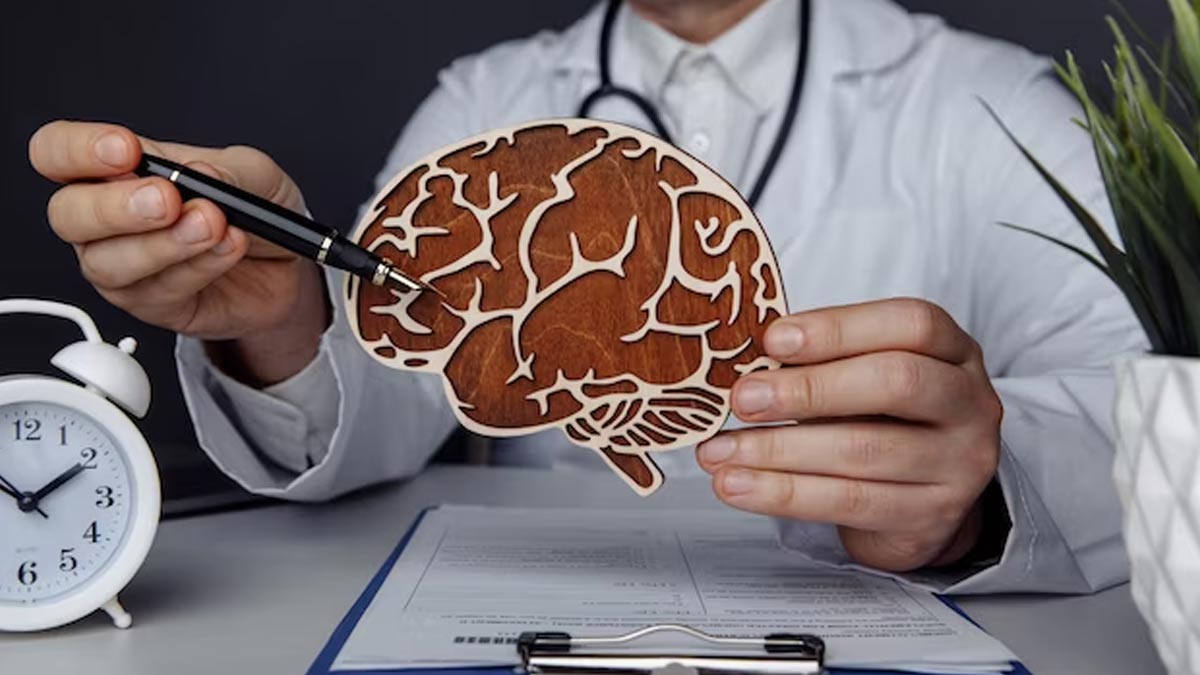
Dementia and stroke are unpredictable diseases. While dementia progresses gradually, strokes can occur suddenly, making both conditions challenging to predict. But what if we told you that there's a way you can assess your risk of developing dementia or having a stroke? A new study has found a tool called the Brain Care Score, or BCS, that helps you do just that. Let us understand further.
Table of Content:-
What Is Brain Care Score?

The Brain Care Score is a tool designed to assess your brain health and your risk of developing conditions like dementia and stroke. According to the study published in the Journal Frontiers in Neurology, the score is typically out of 21, based on 12 health factors related to your physical, lifestyle, and social-emotional well-being. These include:
Physical: Factors like your diet, exercise, sleep, and blood pressure
Lifestyle: Smoking habits, alcohol consumption, and cognitive engagement through activities like reading or learning new skills
Social-emotional: Stress levels, social connections, and sense of purpose in life
Dr Jonathan Rosand, co-founder of the McCance Center for Brain Health at Massachusetts General Hospital and the study's senior author, said, “Patients and practitioners can start focusing more on improving their BCS today, and the good news is that improving on these elements will also provide overall health benefits."
Also Read: Dementia: Warning Signs One Should Never Ignore
Study Details

The BCS is based on data from the UK Biobank, which involved 398,990 participants, aged 40-69, recruited between 2006 and 2010. 5,354 incident cases of dementia and 7,259 incident cases of stroke were recorded during a median follow-up of 12.5 years.
The researchers studied how the BCS score of each person in the UK Biobank changed over time. They also tracked whether those people developed dementia or stroke later in life. They found that a higher BCS score, meaning healthier habits, was associated with a lower risk of developing dementia and stroke.
With a 5-point higher score, adults younger than 50 showed a 59% lower risk of dementia and a 48% reduced risk of stroke. People in their 50's had a 32% lower risk of dementia and a 52% lower risk of stroke. Those over 59 had a 8 and 33% lower dementia and stroke risk, respectively.
How To Improve Your Brain Care Score?

While the study did not give specific health tips to improve BCS scores, it does indicate that making mindful lifestyle choices can reduce the risk of dementia and stroke. Some of the healthy habits to follow include:
- Eating plenty of fruits, vegetables, whole grains, and lean protein
- Limiting processed foods, sugary drinks, and saturated and unhealthy fats
- Indulging in regular exercise
- Getting 7-8 hours of good quality sleep each night
- Monitoring blood pressure and cholesterol levels regularly and keeping them under control
- Quitting smoking and limiting alcohol consumption
- Staying mentally active by learning new things, reading, playing games, and doing puzzles
- Building strong social relationships
- Managing stress stress levels with yoga, meditation, etc.
Conclusion
The risk of dementia and stroke increases with age. However, young people should indulge in healthy lifestyle habits to lower the risk of developing cognitive impairments later in life. Making smart choices when you can may help add quality to your life.
Also watch this video
How we keep this article up to date:
We work with experts and keep a close eye on the latest in health and wellness. Whenever there is a new research or helpful information, we update our articles with accurate and useful advice.
Current Version